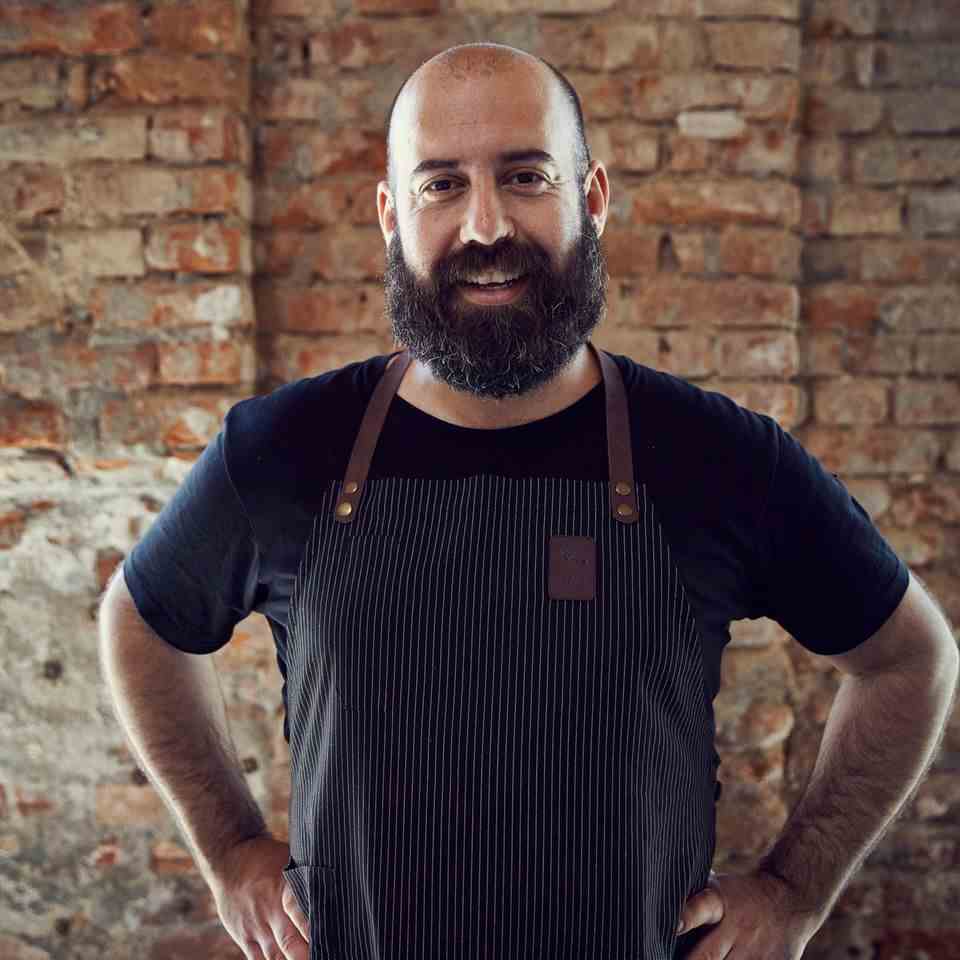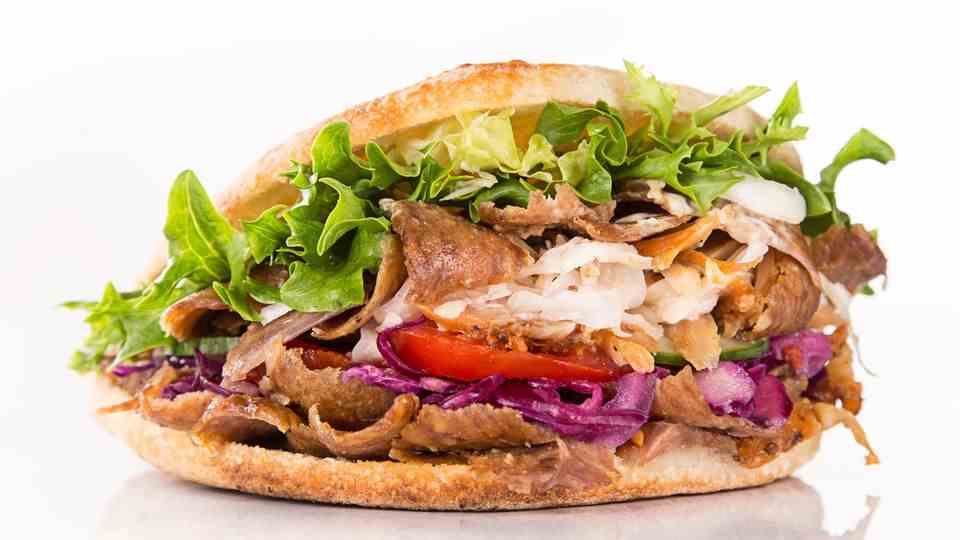Gastro expert Koral Elci
“We need a doner kebab revolution”: why doner kebabs often don’t taste good in Germany
This is what a doner kebab looks like in Germany. The quality is often questionable.
Doner kebabs are on every street corner. However, the quality often leaves a lot to be desired. Gastro expert Koral Elci demands that awareness of the cultural asset kebab is finally developed. What it takes is nothing less than a revolution.
A good doner kebab comes with just a few ingredients: crunchy salad, crispy grilled meat, home-baked flatbread. But everything stands or falls with the quality of the meat. That’s the way it should be. But the kebab industry has long since found ways to make skewers as cheaply as possible. An excess of minced meat, starch, breadcrumbs, water, phosphate and all kinds of spices often ends up in the porridge. What ends up in the flatbread often has nothing to do with the original product. The Hamburg gastronomy expert Koral Elci, managing director of the food agency “Kitchen Guerilla”, also criticizes this, even saying: “Doner kebabs in Germany just don’t taste good.” Why is that?

Koral Elci runs the “Kitchen Guerrilla” in Hamburg. Born in Istanbul, he wants to campaign for good kebabs: “Make Döner Great Again”
© Seren Dal
“The biggest problem is that Turkish cuisine is not properly represented in Germany,” says Elci. “And there is a big difference between German and Turkish doner kebabs.” In Turkey, the rotisserie is very often skewered yourself: the lamb or beef is marinated overnight, layered and slowly grilled, ideally only on charcoal. The bread is freshly baked and is filled with meat, parsley, sumac-spiced onions, grilled tomato and peppers, and pickled pickles. There is no sauce there. “You focus on the meat quality,” says Elci.
The quality of the German kebab is bad
No one knows exactly who developed the doner kebab. But old travel accounts suggest that skewered meat has a long tradition in Anatolia. Serving the meat in a piece of bread and offering it to take away is said to have been an invention of Turkish guest workers in Germany. This is how the doner kebab conquered all of Germany in the 1970s. Back then, grilled meat was served in flatbread with onions. From Berlin, the doner kebab made a career: Today, the meat skewers are said to rotate behind the window panes in around 32,000 snack bars, and billions are sold with the fast food. And therein lies the problem: the quality suffers massively.
“The whole kebab industry is price trimmed,” says Elci. “Nobody can be happy there: the customer wants to get a lot for little money. The kebab owner lacks the know-how and awareness of a good product and adapts to the customer’s wishes. So the snack bar operators go to the kebab manufacturer, buy the finished rotisserie skewers and have to sell as much as possible to make some money.”
The kebab needs a revolution
For Elci it is clear that the customer has to reorient himself and question the origin and quality, just like with other products. “We need a doner kebab revolution,” says the gastro expert. Dishes such as burgers and pizza have already done that. Fifteen years ago everyone was still consuming burgers from the fast food chains, today you can find a restaurant in almost every city that serves good burgers with meat from species-appropriate husbandry. “Someone was brave enough to do it differently, it was a complete success. Just like the Italians did it right, they understood storytelling,” says Elci.
Döner must continue to develop: the possibilities and the potential are there. “I hereby shake hands with the doner kebab industry, I want to help operators and producers to make doner kebabs a high-quality product.” For example, doner kebabs could also be served vegan, with very good meat substitutes that are now available, says the gastro expert. “A good doner kebab can then also cost a little more, especially if the quality is right,” says Elci. Some are already doing this, for example “Kebap with Attitude” in Berlin or “Hans-Kebab” in Munich. “The end consumer must be willing to spend more money for a good product. We now pay twelve euros for a good pizza,” says the gastro expert. Around 60,000 people work in the doner kebab industry, so many people who could make a difference.



